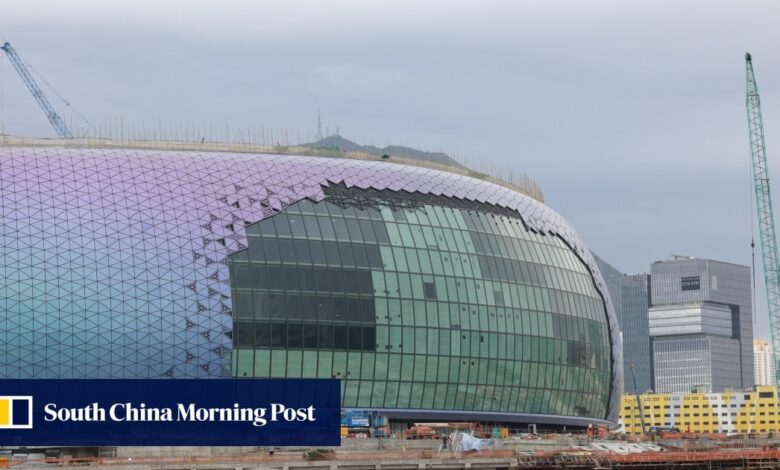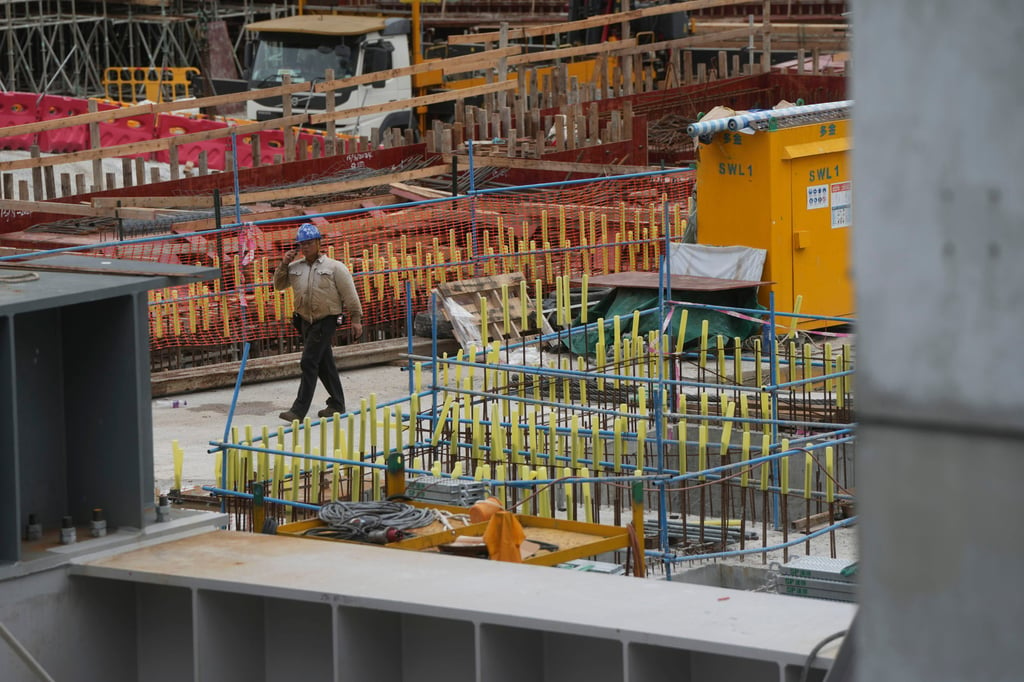Hong Kong fintech start-up offers loans to unpaid subcontractors amid building slump

A Hong Kong building subcontractor surnamed Chan, who was responsible for electrical and mechanical work in air-conditioning systems on a project at Hong Kong International Airport at the beginning of this year, waited several months for the project’s main contractor to pay him.
Seeking relief from his liquidity problem, Chan even approached banks but was told that a loan would take months to approve, as lenders are now more cautious when it comes to construction projects.
The sector is facing challenging times with a financing gap that continues to widen. Back-to-back payment arrangements, long waits for invoices to be paid, and time-consuming paper-based processes are locking up an estimated HK$53.8 billion (US$6.9 billion) in the construction supply chain each year and creating a need for accessible and efficient working capital, according to Riverchain, a Hong Kong-based fintech start-up that is trying to address that need.
A construction subcontractor hired to handle a specific aspect of a larger construction project often needs to obtain a cash advance to cover the wages of its employees and materials bought for other projects in hand while waiting for payments to come through.
“I waited more than six months, and final payments took even longer,” Chan said, declining to disclose the amount he was owed.

He tried to borrow money from friends and even used a property as collateral, but “the approval also took some time, which can’t ease cash flow issues”, he said.
Chan said the problem has become more common since the city’s property market went into a downturn. “Developers have become more prudent so the number of private projects is less,” he said.
In July, a labour dispute erupted at the construction site of Seasons Place at Lohas Park in Tseung Kwan O, jointly developed by the MTR Corp and Wheelock Properties, as nearly 100 workers had not been paid more than HK$6 million in wages, according to local media reports.
Eventually, Chan turned to Riverchain, which provides online cash advances by using alternative industry data to determine if a borrower is suitable.
He uploaded his project invoice and relevant documents and received around 90 per cent of his project’s funding amount, minus a one-off Riverchain fee, within 48 hours.
“The construction sector has traditionally had a lack of access to financial products designed for the sector,” said Ben Wong, CEO of Riverchain. “We have designed a financing product that is a working capital relief where we are able to turn their accounts receivable into cash.”
“We also noticed that the sector is largely behind when it comes to digitalisation and we want to make the supply chain a little bit more transparent and uniform,” he added.
Riverchain’s digital platform features a risk model that capitalises on industry knowledge and the ability to unlock value from both unstructured and structured industry data, for example, construction site data, performance data and money flow data.

The fintech firm will purchase the construction invoice and provide a cash advance of up to 90 per cent. “We will then wait for the full amount of the invoice to be paid out by the client and send [our customer] the balance of the payment minus our fees, which is below market average” Wong said.
The start-up, which has been going for seven months, launched a HK$400 million fund to support the city’s subcontractors and construction suppliers.
“The fund is going to help us accelerate [growth], as we do believe there are a lot of projects still in the pipeline … a combination of public and private projects,” Wong said.
The company has provided financial support to more than 30 projects, including 11 Skies, The Henderson and Kai Tak Sports Park.
“We believe that the construction sector is a core driver of economic growth in Hong Kong … so we’re going to continue supporting it, and we’re looking for specific opportunities in the construction sector where we can provide the working capital, but also identify a very good quality asset class to our investors,” Wong said.
Despite the current property market slump, Riverchain sees a lot of good projects that can be supported and expects that by the end of this year it will have deployed capital of about HK$500 million, reaching HK$2 billion by the end of 2025.
“We’re not just confining ourselves to Hong Kong. We hope to be able to tap into the Southeast Asian region in the next year, because the supply chain and construction [there] is similar in terms of needing to be able to adopt digital solutions, but also needing to address some of the working capital needs they have,” Wong said.
Source link



